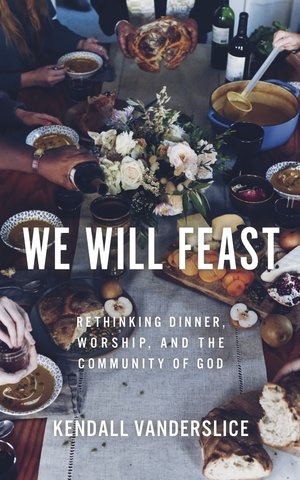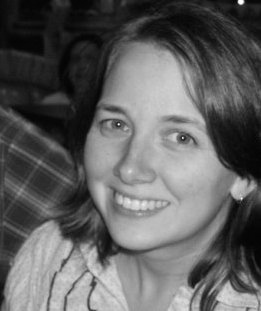|
On Epiphany 2021, as I watched the images of mobs storming the United States Capital building, I felt compelled to write a thank-you letter to all of my loved ones in Potluck Church. So, I grabbed my laptop and opened up our Facebook group page and hurriedly hacked out:
“This may seem like an odd thing to say on a day like this, but I feel compelled to say how SO very thankful I am for each of you personally and for the whole of us as a church--that we, despite all of our many (many!) differences, have gathered around the Lord's Table to practice civil, respectful conversation and learned to love each other just as we are and honor the light of Christ in one another even in our imperfections. God is bigger than all of our perspectives and opinions and sins. And God's call upon us is far greater than any one of us can imagine or see or discern. We need each other. Thank you for being one of the few places in my life where I can freely share my opinions and know that they will be gently heard with love and challenged with an equal amount of love. The world needs more of this thing that God has created among us. I love you all!” Because of Potluck Church I can testify that the Lord’s Table is not just a place for presiding over and serving communion. The Potluckers have shown me that the Lord’s Table can be a place for sitting down and sharing our hearts and minds with one another in a respectful and sacred space. And each time when I leave that Table, I feel heard, and known, and challenged, and loved. Around the table we share our doubts, worries and fears. We question almost everything, and learn from one another’s lives. And we confess that none of us has all of the answers. We need each other to get even a glimpse of just how big the God we worship and serve really is. God has many ways of healing this world, and I know that one of the most powerful ways is in the breaking of bread around a table with lots of chairs. What if all of our churches held communion as a full meal…at a table suitable for dining…with enough chairs for everyone…and a space held between them that is so respectful that even their conversation can be called “sacred” and “worship”? What healing might God unleash upon us all? We’ve been receiving more great questions lately, so I thought I’d share a few of them here in another FAQ round-up:
Where do you gather for worship? In July of 2018 we started living into a pop-up model of gathering, changing our location from time to time. To find out where we are gathering this week, check out our Facebook page at https://www.facebook.com/MadisonvillePotluck/. What should I wear to a Potluck worship? Most of us seem to come to worship in comfortable, casual clothes. Some of us come directly from our workplaces, so we come in our work clothes, whatever they may be. This week I wore my church camp t-shirt and jeans. Someone else wore a plaid shirt and khakis because he had come directly from a meeting. Another wore her work attire of a dressy shirt and dress pants. Others wore t-shirts and jeans. Where else can I read more about Potluck Church?
 We are so excited and honored to be a part of an important new book that will be coming out May 14, We Will Feast: Rethinking Dinner, Worship, and the Community of God. The author, Kendall Vanderslice, visited nine dinner church communities across the country and chapter by chapter highlighted about each one. Potluck Church is chapter 7, “On Membership.” We Will Feastchronicles Potluck’s journey into becoming church. It shows our gratitude to First Christian Church of Madisonville, who nested and nurtured us in for those early years. It describes what we have discerned of God’s vision for this community thus far. And, it tells of the answers we have yet to discern. It’s a beautifully written book. For instance, check out this sentence from Page 101: Week after week they see community deepen between men and women from many backgrounds, between folks who come because they so deeply love Jesus they want to spend all the time they can at his table and folks who come because they ache so deeply that they need a fistful of bread as a reminder that Jesus exists at all. It’s so true; God continues to gather such a diverse group of people around our worship table, and yet we come with an attitude of respect and humility. No topics or questions or vulnerabilities seem to be off limits. We respect faith, and we respect doubt. Two of the lines on Page 99 of We Will Feast that really capture a unique aspect of Potluck Church read: In this space, the diverse needs are not only heard and lifted up to God together, but methods for responding to those needs are offered as well. And on those weeks when some members choose to keep concerns to themselves, their potluck offering can still provide unspoken insight into what’s going on. What a gift to be described through the eyes of another--in a published book no less! And, what an honor to have our story told alongside these other eight creative dinner church communities. We are deeply grateful to Kendall for making the trek out to western Kentucky and for sacrificing her time to give her gifts in service to God in this way. If you would like to learn more about Kendall’s work, download her free group discussion guide and pastor/church leader resource kit, or pre-order a copy of We Will Feast, please visithttp://kendallvanderslice.com/we-will-feast. And, to read a sample chapter, please click the menu tab on our Facebook page at https://www.facebook.com/MadisonvillePotluck/. (Vanderslice, Kendall. We Will Feast: Rethinking Dinner, Worship, and the Community of God. Grand Rapids, MI: Wm. B. Eerdmans Publishing Co., 2019) I’ve found that at the end of a stressful day, or when I’m struggling with a problem that seems too big to handle, or if I’ve gotten crosswise with someone, if I can just step into the kitchen and take a moment to cook a dish—any dish really—I come out in a better place in the end.
The kitchen is one of my happy places. It is the closest thing I have to an artist studio. Chopping and whisking and stirring put me in a mentally restful zone of creativity. Cooking is one of those activities that produces something tangible in short order. Unlike much of my work, cooking has a finish line, an end point, a result. However the dish turns out, I can look at it and say, “I made this.” As God’s creatures maybe we all need spaces in our lives to be creators. But what elevates this experience to the next level is having the opportunity and privilege of sharing my dish with another person who is eager to eat. What joy! Last year our family took a vacation to Washington, D.C. In the weeks before we left several folks recommended that we MUST put the Smithsonian’s National Museum of Natural History on our things-to-do list. I confess that the name instantly turned me off. Cavernous halls of large displays of dinosaur bones instantly came to mind. Not my thing! (Sorry, dino lovers.) Well, we went—mostly to say that we did to all of those who were determined that we go. It was AMAZING!
The best part was the interactive education area for tweens and teens called Q?rius (pronounced curious). Part of this area is the Collection Zone--a giant room of hundreds of drawers with thousands of specimens to be taken out of storage, touch, put under a microscope and explore. Our minds were blown. Instead of walking through halls of reported information about displays, the museum has turned itself inside out and given the visitor the ability to tap into one’s own curiosity and do hands-on exploration. (See more at https://qrius.si.edu/what-qrius-experience.) As a parent, I’m a big believer in stoking a child’s curiosity and keeping a child’s zeal for learning alive. We do this by reading books together to do deep-dives on topics of interest, asking open-ended questions, and googling things together that we don’t know. In our parenting we confess the limits of our understanding and knowledge. But Q?rius was a place where my husband and I could step out of the role of broker or facilitator and just let our child explore with abandon. It made me wonder…is there a way to turn the church inside out in such a way that those who encounter it might explore and seek out answers to their own questions and curiosities about the Christian life and scriptures? What would that look like? [After reading the poem “The Plastic Angel” by Ann Weems, extend the invitation by saying. . .]
Sometimes we come to this table feeling sort of plastic, as if our own annunciations are feeble—filled with doubt. But from the beginning, this table has always been a place that made room for those who doubt, those who misunderstand, those who talk a good game, those who miss the messages, those who loose hope, and those who lack glory. And, yet, Jesus welcomed them around the table. There is a place for us here. [See Ann Weems, “The Plastic Angel,” in Kneeling in Bethlehem (Philadelphia, PA: Westminster Press, 1987), 43. Currently available to be viewed via Google Books.] Our recent conversations at worship have focused on the Protestant Reformation as we celebrate its 500th anniversary. It’s amazing to consider the legacies of the reformers—scripture in the vernacular, the priesthood of all believers, and the elevation of hymn singing, to name a few. Where would simple models of church be today if not for the reformers who sometimes gave their lives for a simpler, more accessible church that felt more true to their beliefs?
Yet, 500 years later, it seems like the reformation remains incomplete. If we are each invited into the ministry of all believers, and God is available to us and worthy of our worship at any time and place, then surely there is more reform to be received in God’s reign. God is not finished with us yet. If you were to write 95 theses to the church today, what conversations might they spark? Are there reforms or protests that you are feeling called to articulate or help enact? |
written by RachelSet a table, invite Christ and others, leave an empty chair, serve up some powerful questions, and break bread. Archives
January 2021
Categories
All
|

 RSS Feed
RSS Feed